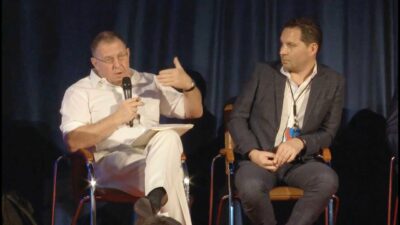KYIV — A Kyiv court has extended the house arrest of Kremlin-friendly tycoon and politician Viktor Medvedchuk, who is being held under suspicion of treason.
Renat Kuzmin, a former Ukrainian prosecutor-general and Medvedchuk ally, wrote on Telegram that the Pechera district court on January 10 had extended Medvedchuk’s house arrest for another 60 days.
Kuzmin called the decision illegal as pretrial house arrest cannot exceed six months, while Medvedchuk’s is now set to last for at least 10 months.
Medvedchuk, who has been held under house arrest since May, was initially targeted with allegations of treason in a case that has added to tensions between Moscow and Kyiv.
In October, prosecutors announced that he is also accused of colluding to finance Russia-backed separatist forces in eastern Ukraine.
Medvedchuk, who has a deep personal relationship with Russian President Vladimir Putin, and his pro-Russia Opposition Platform — For Life party have both made statements rejecting the charges and calling them politically motivated.
Last year, Ukraine’s National Security Council announced sanctions against Medvedchuk, his wife Oksana Marchenko, and several other individuals and entities.
The sanctions froze the couple’s assets for three years and prevented them from doing business in the country.
In February 2021, President Volodymyr Zelenskiy’s government also sanctioned three television stations believed to be owned by Medvedchuk. The move came shortly after talks between the U.S. Secretary of State Antony Blinken and Ukrainian Foreign Minister Dmytro Kuleba.
Medvedchuk’s relationship with Putin runs so deep that the Russian leader is the godfather to Medvedchuk’s daughter.
Medvedchuk was sanctioned by the United States in 2014 for undermining democracy in Ukraine.
The sanctions were tied to an investigation into exports of coal to Russia from separatist-held regions in eastern Ukraine.
Fighting between Ukrainian government forces and the Russia-backed separatists who control parts of Ukraine’s Donetsk and Luhansk regions has killed more than 13,200 people since April 2014.
Russia annexed Crimea in March 2014 and instigated separatist clashes in Ukraine’s east after anti-government protests toppled Ukraine’s Russia-friendly former president, Viktor Yanukovych, in February 2014.



